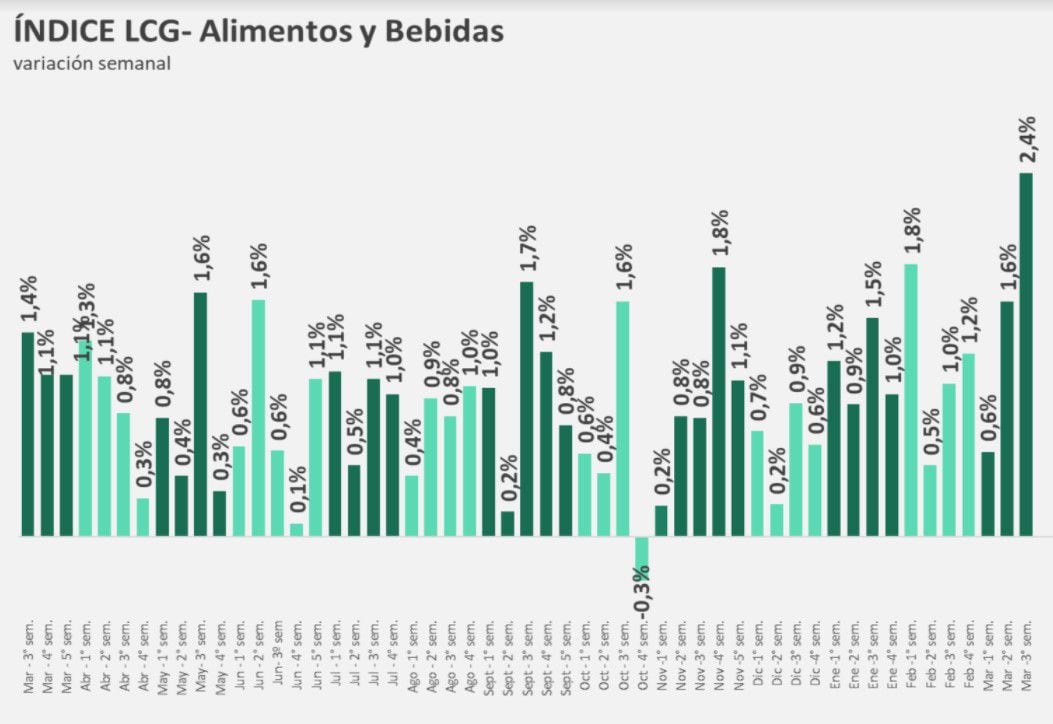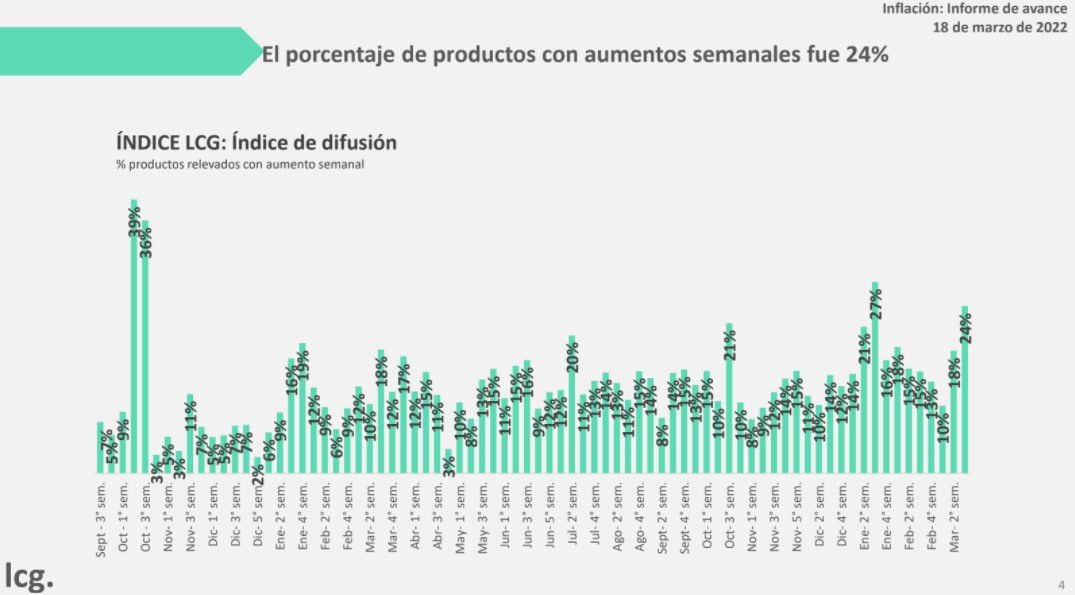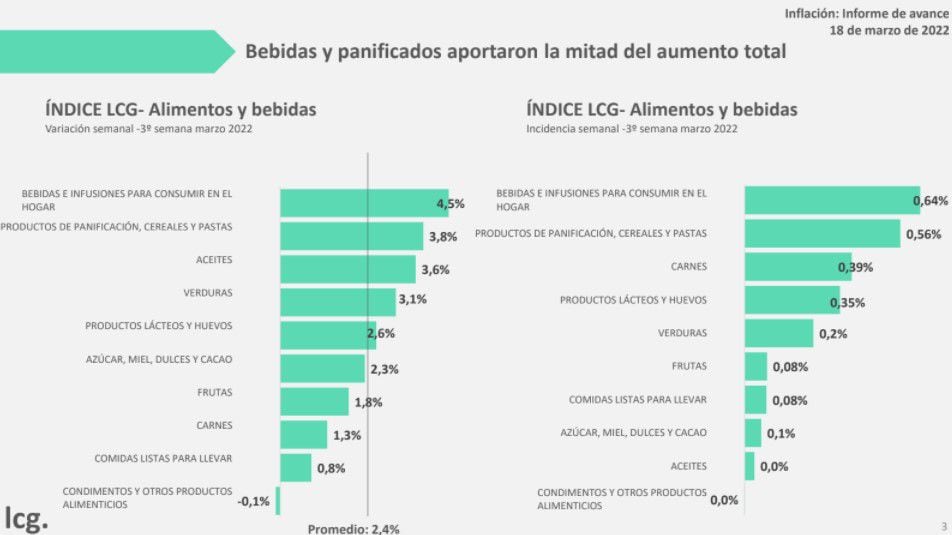
The third week of March closed with inflation of 2.44% in food and beverages, accelerating 0.86 percentage points compared to the previous week, according to a survey carried out by the consultancy firm LCG.
This week's jump was abrupt. According to the study, in the first week of this month food and beverages increased by 0.6%, while the second week of March the increase was 1.6%.
Likewise, the food and beverage index had a monthly inflation rate of 4.6% on average in the last four weeks and 5.9% end-to-end in the same period.

In the weekly report, which was released this Friday, it was detailed that the percentage of products with weekly increases was 24%. “Prices are rising because now the war is beginning to impact. And they ride on an already very high inertia,” analyzed Melisa Sala, chief economist of LCG, in dialogue with Infobae.
He argued that “there is a high inertia that came from before and that is what the rise in prices worldwide is mounted” as a result of the war between Russia and Ukraine. “The adjustment or prevention of margin recompounding belongs to all companies in the face of this acceleration,” said the specialist.
According to Sala, this is a bigger leap than it had been taking, but not very different. And on that axis, he stressed: “The worrying thing perhaps is the number of products that have an increase: 24% of the products surveyed have an increase.”

On the other hand, the consultancy firm LCG indicated that drinks and bakery products accounted for half of the total increase. And in turn, he pointed out that vegetables and bakery were the ones that led monthly inflation.
Regarding the “average variation from the last four weeks to the third week of March this year”, the report specified that vegetables rose 7.2%, bakery products, cereals and pasta 5.4% and beverages and infusions to be consumed at home 5.2%.
According to the perspective of the chief economist, if this rate is maintained, within a month all the products in the basket will have had some increase, which implies a “very high inertia”.
According to them, they were not surprised by the increase in food that occurred in the third week of this month “because inertia is high” and is always expected to continue to increase. “What does,” he acknowledged, “there are times when one week goes up, the other one goes down a little... And now you look at the three weeks of March, and it is constantly accelerating.”

As for the methodology of the survey, it was carried out through web scraping.
- Prices of 8,000 food and drinks from five supermarkets were surveyed.
-Weekly cuts took place on Wednesdays.
-The weighters correspond to the structure of the Consumer Price Index of the Autonomous City of Buenos Aires (CABA).
Food supply chain
In this context, the United Nations (UN), through the World Food Programme (WFP), warned on Friday that the food supply trade chain is deteriorating in Ukraine as a result of the war, and that a global crisis with prices at record prices is exacerbating.
According to the agency, the invasion by the Russians is causing difficulties in Ukraine's ability to transport food inside and outside the country.
“Increases in international food prices generated by the conflict, once transferred to domestic markets, will limit people's access to food,” WFP warned.
It should be recalled that Ukraine is a major food producer. It generates 70% of the world's sunflower oil and is the fifth largest exporter of wheat (with a 10% global share).
KEEP READING:
Últimas Noticias
Debanhi Escobar: they secured the motel where she was found lifeless in a cistern
Members of the Specialized Prosecutor's Office in Nuevo León secured the Nueva Castilla Motel as part of the investigations into the case

The oldest person in the world died at the age of 119
Kane Tanaka lived in Japan. She was born six months earlier than George Orwell, the same year that the Wright brothers first flew, and Marie Curie became the first woman to win a Nobel Prize

Macabre find in CDMX: they left a body bagged and tied in a taxi
The body was left in the back seats of the car. It was covered with black bags and tied with industrial tape
The eagles of America will face Manchester City in a duel of legends. Here are the details
The top Mexican football champion will play a match with Pep Guardiola's squad in the Lone Star Cup

Why is it good to bring dogs out to know the world when they are puppies
A so-called protection against the spread of diseases threatens the integral development of dogs




